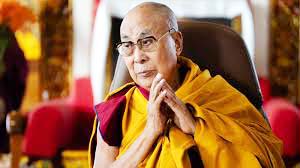The price India pays for better relations with China is multifaceted.
In the intricate dance of international relations, India finds itself in a delicate position, balancing its historical ties with Tibet and the Dalai Lama against the pragmatic need to foster better relations with China. This balancing act comes with significant costs, both politically and morally.
India has long been a sanctuary for the Dalai Lama and the Central Tibetan Administration (CTA) since the Tibetan uprising in 1959. The presence of the Tibetan spiritual leader and the exiled government in Dharamshala has been a point of contention in Sino-Indian relations. China views the Dalai Lama as a separatist threat, and his activities are seen as undermining Chinese sovereignty over Tibet
In recent years, India has had to navigate this complex relationship with increasing caution. The need to maintain a stable and cooperative relationship with China, especially in the face of economic and geopolitical pressures, has led to a more restrained approach towards the Dalai Lama and the CTA. This includes limiting their public engagements and reducing official interactions, which can be seen as a concession to Chinese sensitivities.
China is one of India’s largest trading partners, and the economic interdependence between the two nations cannot be ignored. Improved relations with China could lead to significant economic benefits, including increased trade, investment, and collaboration on global issues such as climate change and regional security. However, these potential gains come at the cost of compromising on India’s historical support for Tibetan autonomy and the moral high ground it has traditionally held on human rights issues.
Restricting the activities of the Dalai Lama and the CTA poses a moral dilemma for India. The Dalai Lama is not just a political figure but a global symbol of peace and human rights. Limiting his influence and the operations of the CTA could be seen as a betrayal of the Tibetan cause and a compromise on India’s commitment to human rights and democratic values. This could also affect India’s image on the global stage, where it is often seen as a champion of democratic principles and human rights.
The price India pays for better relations with China is multifaceted. While the economic and strategic benefits of a closer relationship with China are clear, the moral and ethical costs are significant. India must carefully weigh these factors as it navigates its foreign policy, ensuring that it does not lose sight of its core values
* The nephew of the Dalai Lama, Khedroob Thondup is a geopolitical analyst.

